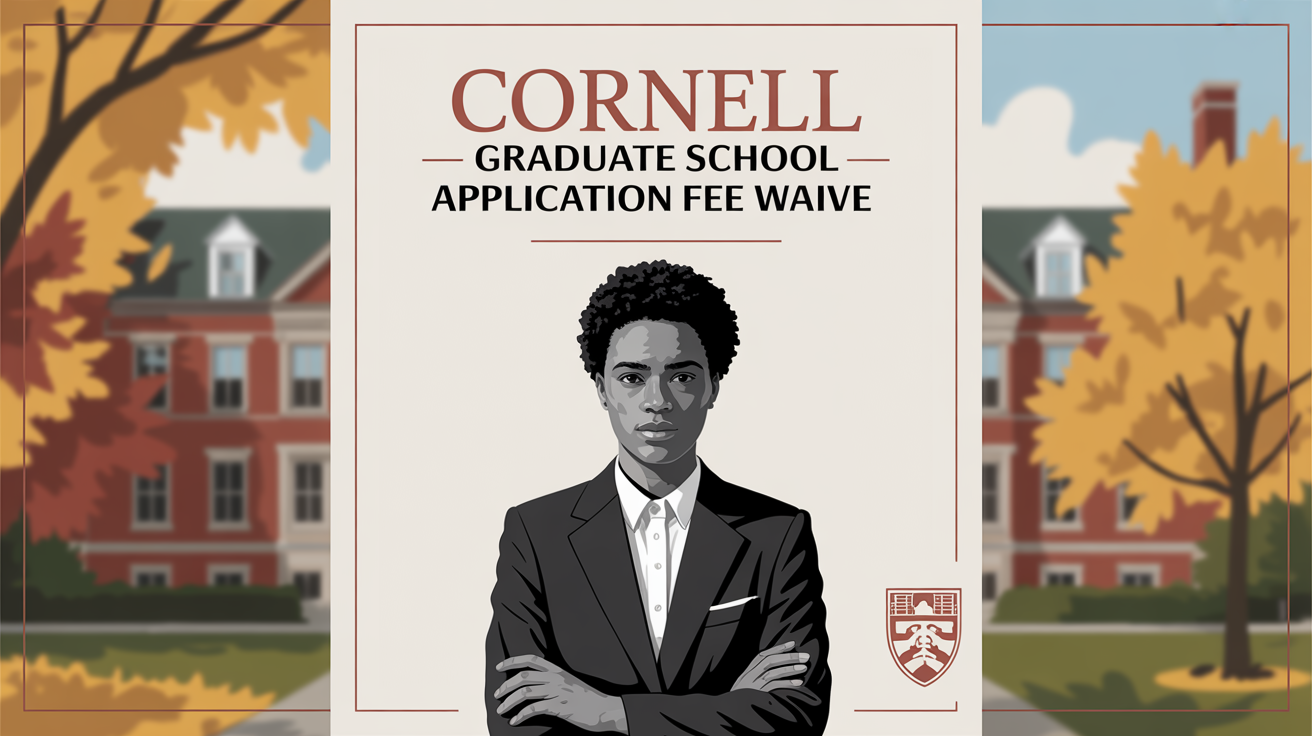Thinking of applying to Cornell University as an international graduate student? Here’s everything you need to know about application fee waivers, funding, and financial support available to you.
Application Fee & Waiver Policy
-
The standard graduate application fee is $105, non-refundable.
-
You can request a waiver through the payment section of the online application if you qualify under certain conditions (e.g. financial hardship or participation in a special program). See Cornell Graduate School: Pay Fees & Waivers.
-
The waiver request typically needs to be submitted at least a few days before the application deadline to allow time for review.
-
If your waiver is approved, you will receive confirmation that your application (with the waiver applied) has been received. If not, you’ll need to pay the fee to complete submission.
For undergraduate applicants, the process is different. You may qualify for an $85 fee waiver through the Common App or NACAC waiver. Learn more here: Cornell Undergraduate Admissions – How to Submit Your Application Fee.
Funding & Financial Support for International Graduate Students
Cornell offers several kinds of financial support for Ph.D. / research-based degree students, including international applicants. Here are the key points:
Full Funding Packages for Ph.D. Students
- Nearly 99% of Cornell Ph.D. students are fully funded through a combination of fellowships, teaching assistantships (TA), research assistantships (RA), or graduate assistantships. Funding packages include tuition, mandatory fees, health insurance, and a stipend for living expenses.
- Stipend rates are consistent across Ph.D. fields. For 2025-26, standard nine-month assistantship / fellowship stipends are about $35,661, with summer support prorated.
- Cornell Tech campus stipends are higher to account for cost of living in New York City.
Support for International Applicants
- International graduate students admitted to Ph.D. programs are eligible for the same funding packages as domestic students. That means full tuition + stipend + health insurance, as long as they are admitted in programs that offer full funding.
- Some programs require international students to show proof of funding during admission. Be sure you know the requirements of your specific department or program.
Other Funding Opportunities
- Fellowships: Cornell has internal fellowships (like University or Graduate School fellowships) that require no service obligations. These are merit-based.
- External grants and fellowships: Students are encouraged to apply to external fellowships to supplement support (e.g. government or philanthropic funding).
- Department / Field Support: Many departments guarantee 5-6 years of support for Ph.D. students in their field. This includes summer stipends, travel grants, and sometimes additional dissertation support.
What International Students Should Prepare
- When requesting a fee waiver, be ready to provide a clear explanation of financial hardship. Since the policy allows for waiver based on need, unemployment, or other factors, your statement should describe your situation.
- For admission and visa purposes, you may need to show proof of funding (i.e., that you’ll be able to support yourself) until Cornell’s funding kicks in. Be aware of these documentation steps. Some programs specifically mention this requirement.
- Understand cost of living, stipend rates, and health insurance expenses to plan accordingly. Cornell provides pretty detailed estimates for these costs.
Where to Apply & More Info
- For fee waiver requests: go to the Pay Fees section of Cornell Graduate School’s application steps.
- For general funding policies and stipend/assistantship details: see Cornell Graduate School – Financial Support / Funding.
- For department-specific details (some differ by field), check the website of the graduate program you’re applying to (for example, CALS, Sociology, Public Policy, etc.)
Why This Matters
- Fee waivers help remove upfront financial barriers for international applicants.
- Cornell’s funding packages ensure you can focus more on your studies and research, rather than worrying about tuition or basic living costs.
- Knowing the policies ahead prevents surprises—especially around documentation and financial planning.
